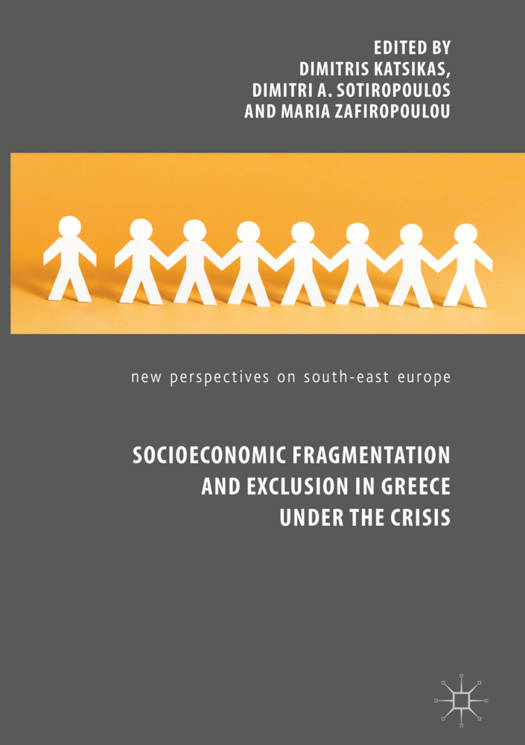
- Retrait gratuit dans votre magasin Club
- 7.000.000 titres dans notre catalogue
- Payer en toute sécurité
- Toujours un magasin près de chez vous
- Retrait gratuit dans votre magasin Club
- 7.000.000 titres dans notre catalogue
- Payer en toute sécurité
- Toujours un magasin près de chez vous
Socioeconomic Fragmentation and Exclusion in Greece Under the Crisis
105,45 €
+ 210 points
Description
Tackles the crisis and the related growing debate on economic inequalities, the rise of Euroscepticism and the change of the political landscape
Engages with timely issues of European fragmentation, which relate to public debates on the EU
Leads to considerations on the scope, structure and reform of the "European" welfare state, particularly in Southern Europe
Engages with timely issues of European fragmentation, which relate to public debates on the EU
Leads to considerations on the scope, structure and reform of the "European" welfare state, particularly in Southern Europe
Spécifications
Parties prenantes
- Editeur:
Contenu
- Nombre de pages :
- 258
- Langue:
- Anglais
- Collection :
Caractéristiques
- EAN:
- 9783319687971
- Date de parution :
- 12-03-18
- Format:
- Livre relié
- Format numérique:
- Genaaid
- Dimensions :
- 148 mm x 210 mm
- Poids :
- 476 g






